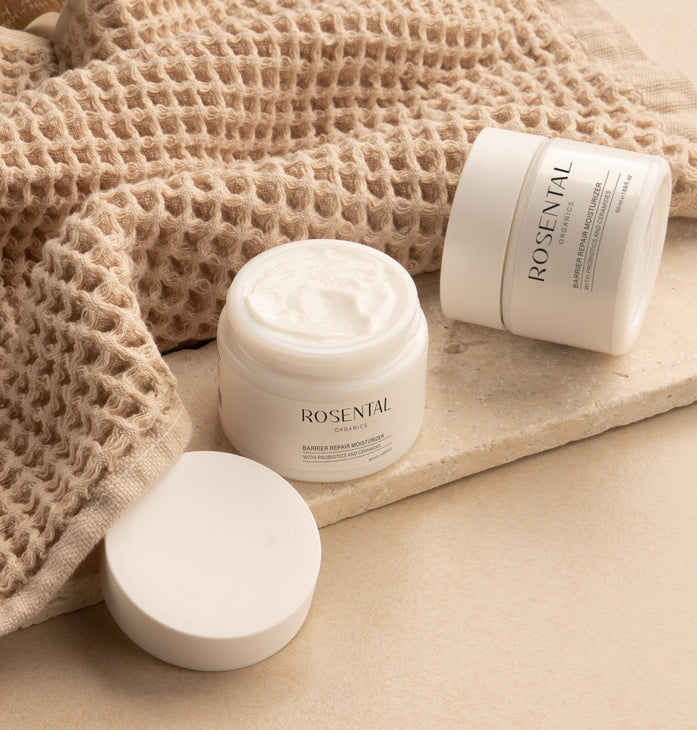AIM Uncovered
Exploring the latest insights and trends in technology and innovation.
Moisturizer Mysteries Unraveled
Unlock the secrets of effective moisturizers! Discover the must-know tips and expert insights that will transform your skincare routine.
The Science Behind Moisturizers: How They Work Wonders for Your Skin
Moisturizers are essential skincare products that play a pivotal role in maintaining the health and appearance of our skin. At their core, moisturizers work by hydrating the skin, sealing in moisture, and creating a protective barrier against environmental aggressors. These products typically contain a blend of occlusive agents, humectants, and emollients. Occlusive agents, such as petroleum jelly or wax, lock moisture into the skin; humectants like glycerin attract water from the environment into the skin layers; and emollients, including oils and butters, soften the skin and improve its texture. Together, these components synergize to restore balance and prevent dryness, making moisturizers a critical step in any skincare regimen.
Moreover, the science behind moisturizers extends beyond mere hydration. Regular use can help reduce fine lines and improve the skin's overall elasticity. A well-formulated moisturizer can also support the skin's natural barrier function, which is crucial for protecting against irritants and pathogens. Some moisturizers are enriched with vitamins and antioxidants, further enhancing their benefits by promoting cellular turnover and fighting oxidative stress. Consequently, incorporating a suitable moisturizer into your daily routine not only keeps your skin hydrated but also improves its overall health and resilience, allowing it to look radiant and youthful.

Choosing the Right Moisturizer: What Ingredients to Look For
Choosing the right moisturizer is crucial for maintaining healthy skin. When selecting a moisturizer, focus on key ingredients that cater to your skin type and concerns. For dry skin, look for products containing hyaluronic acid, which helps retain moisture, and ceramides, that strengthen the skin's barrier. If you have oily or acne-prone skin, choose a lightweight, non-comedogenic moisturizer with ingredients like salicylic acid to control oil production and prevent breakouts.
Another important factor in selecting a moisturizer is to consider the presence of antioxidants and SPF for added protection. Ingredients such as vitamin C and green tea extract help fight free radicals that can cause premature aging. Incorporating a moisturizer with broad-spectrum SPF can also safeguard your skin against harmful UV rays while keeping it hydrated. Ultimately, understanding the ingredients in your moisturizer will empower you to make an informed choice that aligns with your skin's unique needs.
Do You Really Need Moisturizer? Debunking Common Myths
Many people believe that moisturizer is an unnecessary step in their skincare routine, especially if they have oily skin. However, this is a common myth. In reality, all skin types can benefit from proper hydration. Even oily skin produces oil, but that doesn’t mean it’s adequately hydrated. In fact, skipping moisturizer can lead to increased oil production as the skin tries to compensate for the lack of moisture. Adding a lightweight, non-comedogenic moisturizer can help balance your skin's oil production and prevent breakouts.
Another prevalent myth is that using a moisturizer clogs pores and causes acne. While it's true that some heavy creams may not be suitable for acne-prone skin, there are many products formulated specifically to avoid this issue. Look for moisturizers that contain ingredients like hyaluronic acid or glycerin, which provide hydration without blocking pores. In fact, a good moisturizer can actually help your skin heal and maintain its barrier, keeping it healthy and clear.